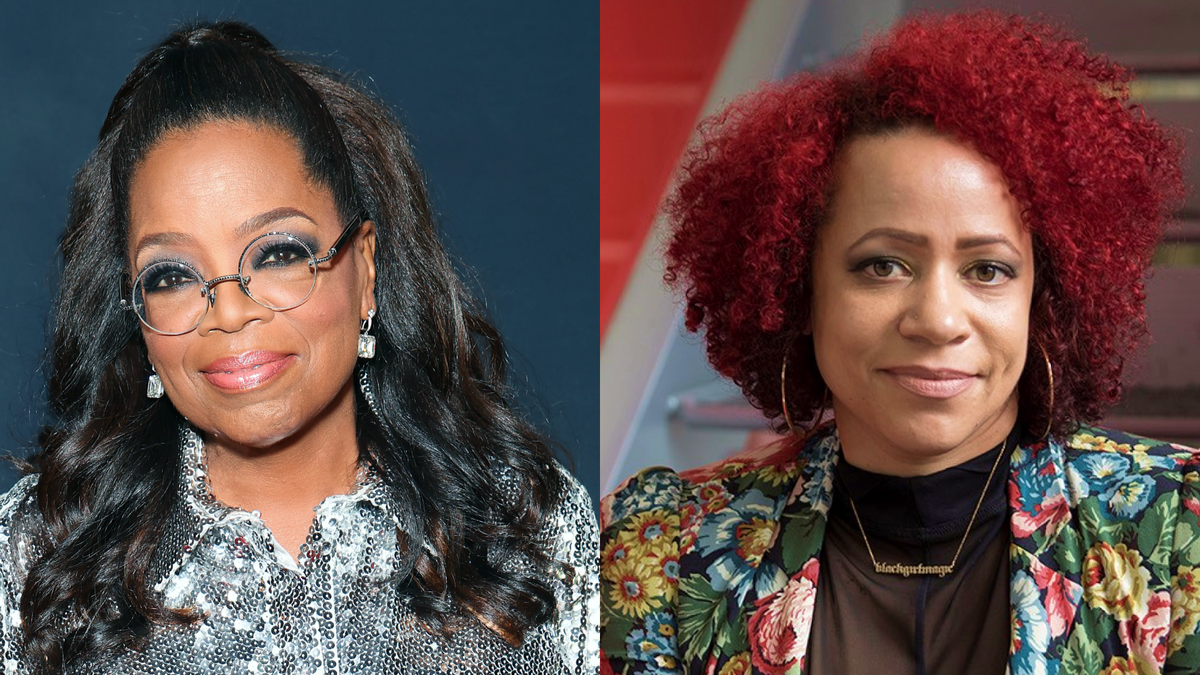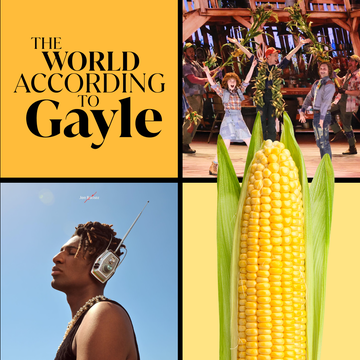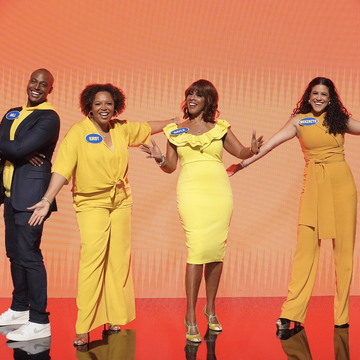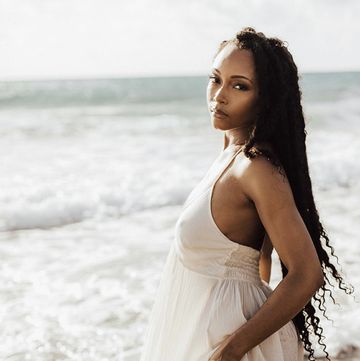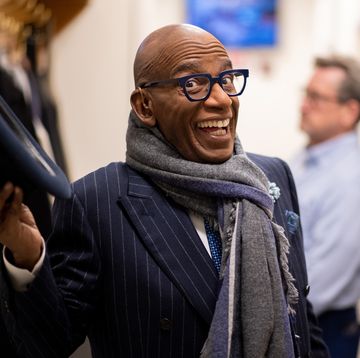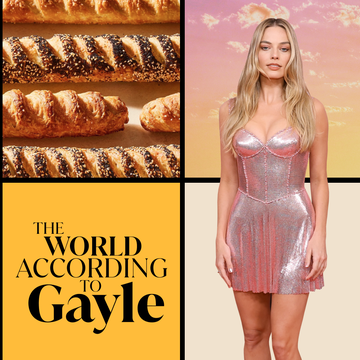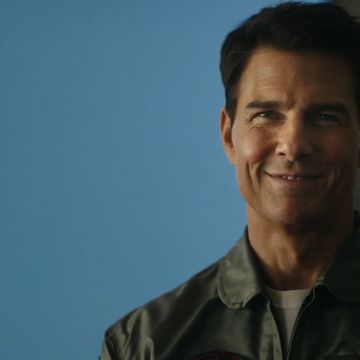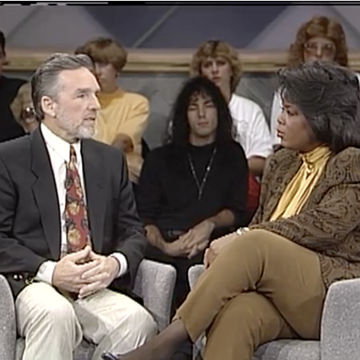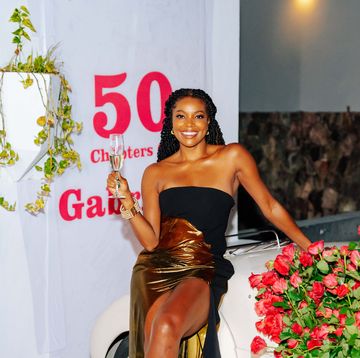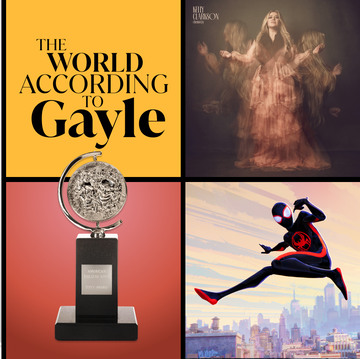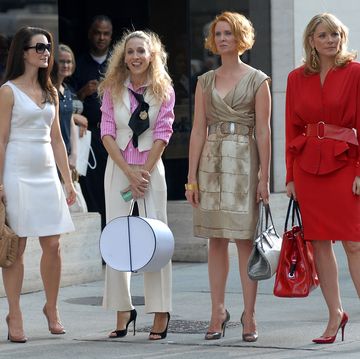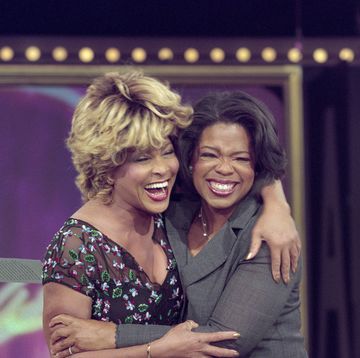Oprah sat down with Pulitzer Prize-winner Nikole Hannah-Jones for an episode of the Super Soul podcast ahead of the premiere of The 1619 Project. The duo executive produced this six-part Hulu docuseries, which wrestles with the undeniable ripple effect slavery has had on the United States. It builds upon the sobering—and deeply comprehensive—"ongoing initiative" of the same name that the journalist released with The New York Times Magazine in August 2019, marking the 400-year anniversary of the start of slavery in this country. Two books were also published in 2021 as part of the project, marking a new chapter in its evolution.
Read on for highlights from Oprah’s groundbreaking conversation with Hannah-Jones ahead of the latest iteration of “The 1619 Project.”
Hannah-Jones on the significance of the year 1619
The year is of both personal and historical significance to Hannah-Jones, who says she feels like she’s “been working toward” this project since she was 15. After sharing how she grew up “on the Black side” of a segregated town in Iowa, Hannah-Jones reflects on the class that sparked her interest in this specific date.
“I was bused to white schools, and my high school offered a one-semester, Black Studies elective. And that class changed my life,” she tells Oprah. “I came across the date 1619, and people who know me know I’ve been obsessed with that date since then. That date stood both for a legacy and a lineage that Black people had been here even before the Mayflower in 1620, and yet every child learns about the Mayflower, but the White Lion in 1619 had been completely erased from our national story. So I feel like so much of my journalism has been about trying to show the way this hidden history, hidden-in-plain-sight history, is shaping our society, whether we grapple with it or not.”
Oprah and Hannah-Jones on the sizable impact of “The 1619 Project”
Oprah notes how the collection of essays illuminate slavery’s far-reaching impact: “What you all have been able to do through ‘The 1619 Project’ is allow us to see how it has affected everything—even traffic! I mean, that was the thing that got me, even traffic. Can you talk about that essay? Even traffic.”
“‘The 1619 Project’ is answering that question every Black person gets, which is ‘Slavery was a long time ago—why don’t you get over it?’ So I wanted to create a project that showed, how do you get over something that is as foundational to your society as anything can be foundational?” Hannah-Jones explains. “So we came up with a bunch of different areas that we hoped would be surprising, and then traced them back, and yes, including traffic in Atlanta...If you begin to read ‘The 1619 Project’ and the texts that underlie it, you see that so much of the architecture of our society can actually be traced back to the legacy of slavery.”
Hannah-Jones addresses the backlash
Hannah-Jones won a Pulitzer for “The 1619 Project,” but to say it simply “sparked controversy” would certainly be an understatement. Oprah asks Hannah-Jones if she was shocked by the stark opposition to it, and what she was trying to explain about how Black Americans have influenced this country.
“Absolutely. I knew there would be resistance, and I knew there would be criticism and critique, and frankly, there should be,” Hannah-Jones says. “This was an ambitious project. We were attempting to make an evocative argument, and, obviously, the reason the project exists in the first place is we have not wanted to grapple with this past. And certainly, we don’t want to acknowledge the way that past is shaping our present. But I couldn’t have ever imagined the full weight of the power that has come down against this project. In speaking with other historians, no one can think of a single text that has been banned by name in so many different laws. The president of the United States issued an entire executive order against the project; two of the most powerful senators started a commission against it. We've seen this whole anti–critical race theory propaganda campaign arise because of the project. I've been a journalist for 20 years, and I've written about racial inequality my entire career, but nothing I've ever done has received this type of response.”
Oprah asks Hannah-Jones how the project has created change
Oprah later asks Hannah-Jones if she thinks “enough people” have interacted with the project for it to create change. The journalist agrees before expanding: “The fact that I’ve been traveling all over the country and what I hear again and again from people—different races, different ages, rural, suburban, urban—is they say, ‘I just never knew. I never knew any of this. And I felt like there was more to the story than what I was getting, but I never knew.’ And once you know, I just think you support different policies. This really is what it’s about.”
Tune in to the video above to learn about why Hannah-Jones has doubts about the future of our democracy but urges us to recognize our “agency.”
The 1619 Project docuseries premieres on Hulu on January 26.
Jane Burnett is an Assistant Editor at Oprah Daily, where she writes a variety of lifestyle content for the editorial team. She's a journalist with a pop culture sweet tooth—when she isn't catching up on celebrity news, she's usually listening to a podcast! Jane was previously an on-air reporter in local news, and worked at Thrive Global, Ladders News, and Reuters. She also interned at CNBC through the Emma Bowen Foundation, and is a member of the National Association of Black Journalists (NABJ).
